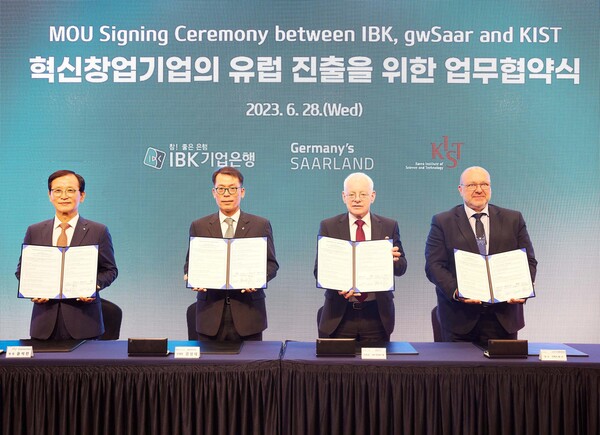The Korea Institute of Science and Technology (KIST) said on Thursday that it signed a business agreement with the Industrial Bank of Korea (IBK) and the German state of Saarland to support Korean start-up's entry into Europe.

The agreement aims to support successful European entry and local commercialization of IBK Changgong's innovative start-up companies in Saarland, located in the south west of Germany.
Accordingly, the three organizations will establish the IBK Changgong European Center at KIST Europe in Saarland to jointly operate an integrated support program for Korean start-ups in the second half of 2023.
Through this EU hub, companies participating in the program will be able to receive one-stop services for their European expansion from the preparation stage, including consulting on the entire process of establishing a local corporation, participating in support programs in Saarland, and connecting with local networks in Germany.
Specifically, KIST Europe will provide infrastructure to IBK incubators and help Korean start-ups build local networks in Germany and Europe.
"By linking the IBK incubator program with KIST Europe's domestic company support platform, we plan to actively support Korean start-ups to enter Europe," said KIST President Yoon Seok-jin.
IBK Changgong is a start-up support platform that provides customized programs for each growth stage, from investment and financing support to consulting, promotion, and market development. It currently operates four centers in Mapo, Guro, Busan, Daejeon, and two camps at Seoul National University and Ulsan National Institute of Science & Technology (UNIST).
Also, Saarland is the birthplace of Germany’s strategic initiative for pushing forward digital transformation and is home to world-class research centers such as the Max Planck Institute, the Fraunhofer Institute, the Leibniz Institute, and the Helmholtz Institute.

